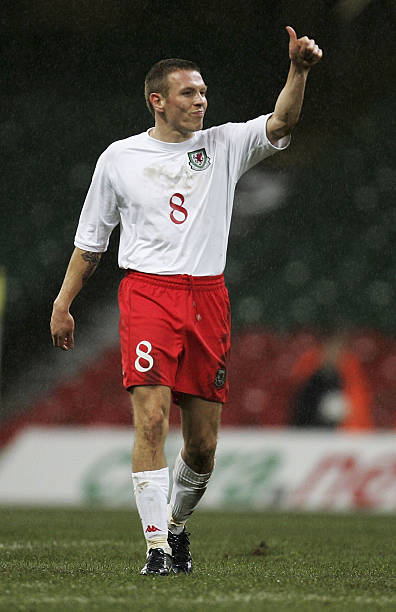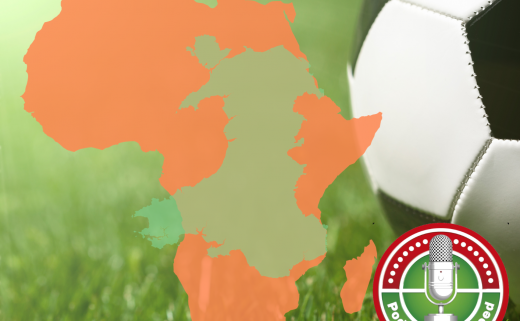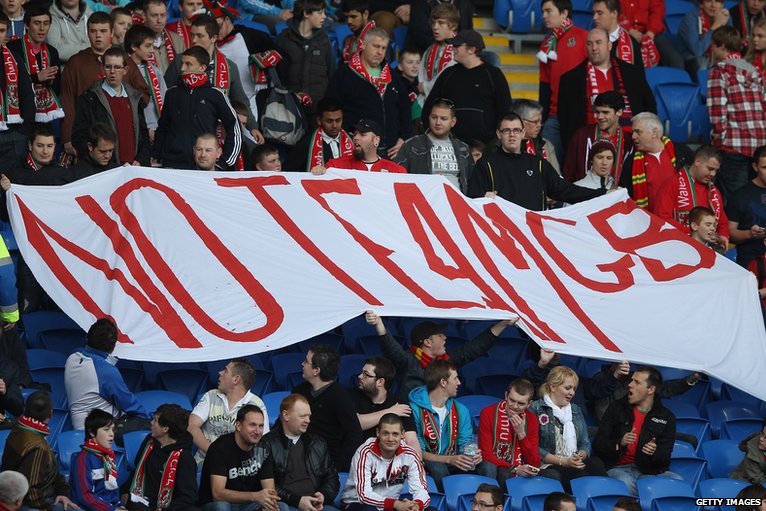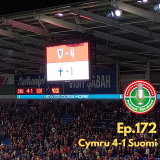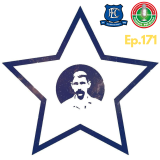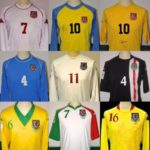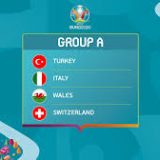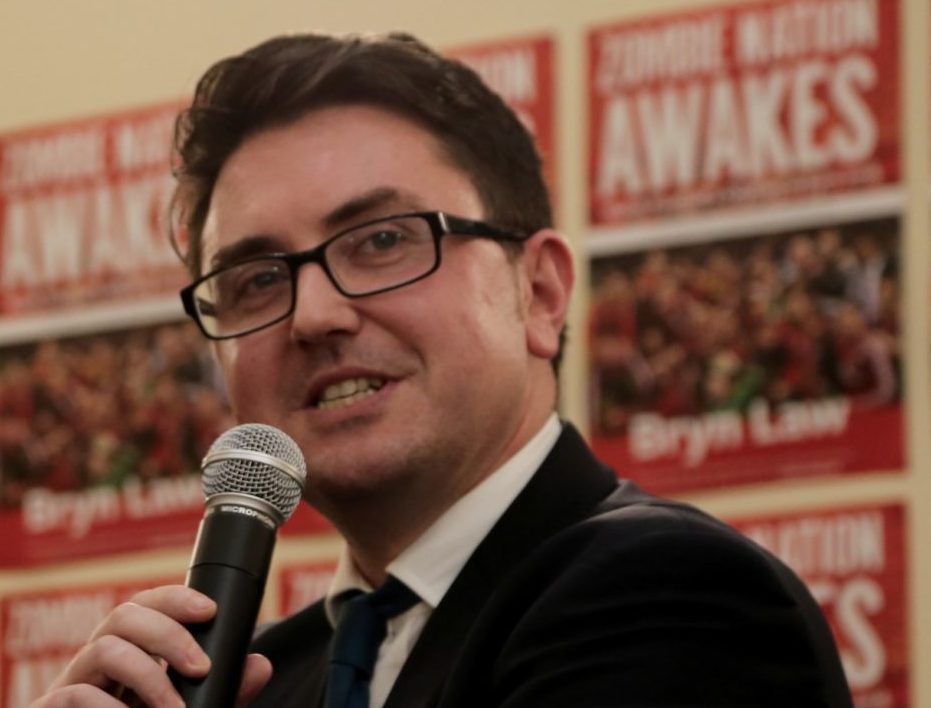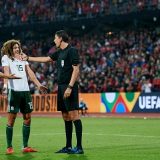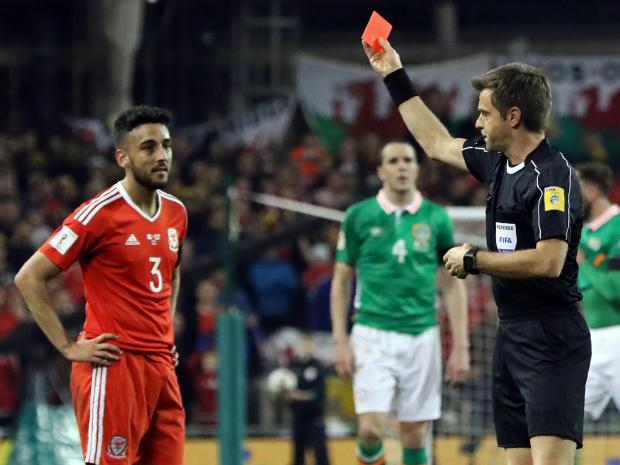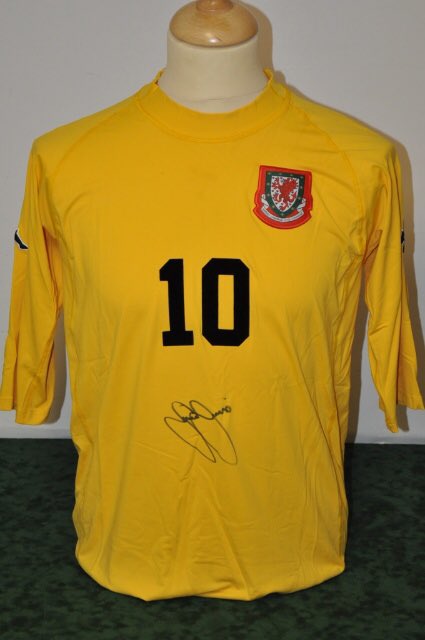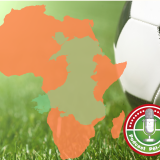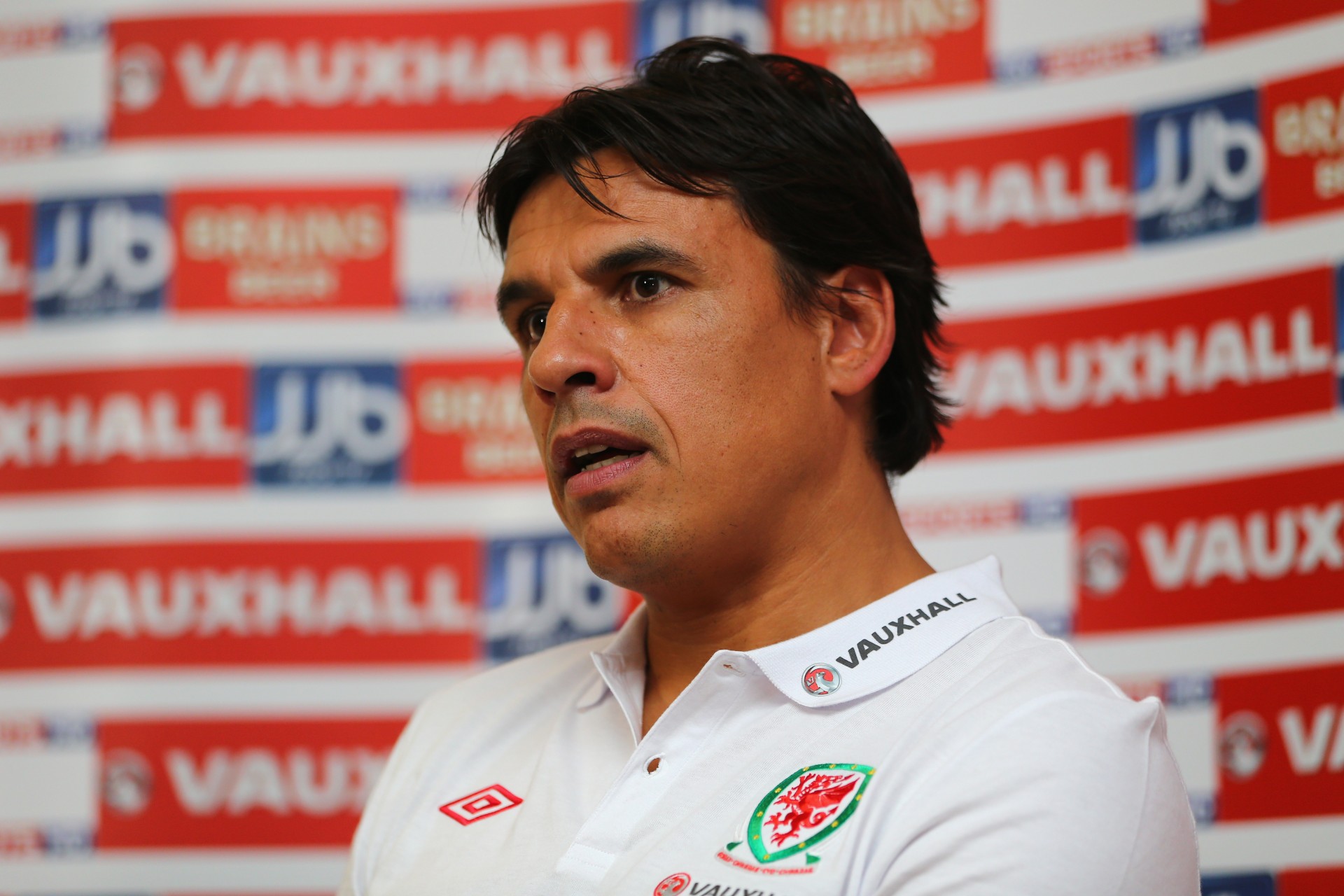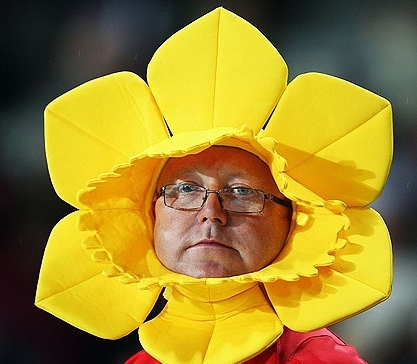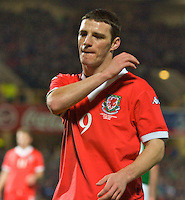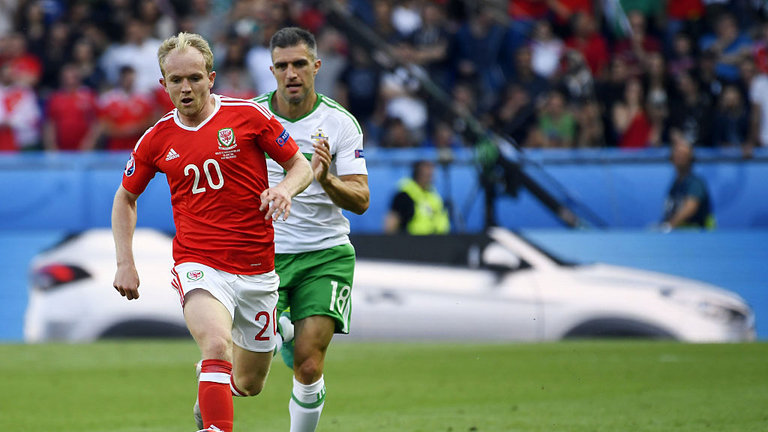Wales and Hungary down the years
On Tuesday Wales will take to the field in Budapest to face Hungary for the eleventh time. Wales have only faced the other home nations, the Republic of Ireland, Belgium and the former Czechoslovakia team on more occasions.
Of the 23 countries Wales have faced on 7 or more occasions it is only the Irish teams, Cyprus and the ‘Magyars’ against whom Wales has a better head-to-head record, a somewhat surprising statistic given Hungary’s past status in the game and historically regular participants at World Cups.
On the ten occasions the two have clashed Wales have won half, drawn two and lost three times. Here’s a look back to the previous ten fixtures from Russell Todd.
Hungary 1-1 Wales, 1958 – the first two clashes came only nine days apart at the 1958 World Cup. In Sandviken Wales faced a Hungary side that had been beaten finalists in two of the previous three World Cups, had famously humiliated England 6-3 at Wembley and 7-1 in Budapest in 1953-4 as part of an astonishing period in which the ‘Golden Team’ achieved the highest recorded ELO international rating, losing only once (the 1954 World Cup final in which Mervyn ‘Sandy’ Griffiths of Six Bells ran the line and infamously made a wrong offside call on Ferenc Puskas) in a 50 match run between 1950 and 1955. They innovated tactically with their legendary manager Gusztáv Sebes employing the deep-lying number 9 that his assistant Marton Bukovi had earlier formulated at MTK.
Two years before the Sandviken clash the Hungarian Revolution served to dismantle the Golden Team, but the Magyars had already faced three rare defeats in Turkey and Belgium, and at home to Czechoslovakia in 1956 to suggest the ageing side was on the wane. Nevertheless they inflicted the first home defeat on the USSR in September 1956 after Bukovi had replaced Sebes and were blooding new talent. Within two months Soviet tanks were less accommodating than their footballing counterparts and crushed what initially started as student demonstrations against Communist rule and Soviet occupation.
Hungary’s 1958 World Cup squad still featured the likes of Nandor Hideguti – the deep-lying tormentor of England in 1953-54 – Jozsef Bozsik and Gyula Grosics in goal but was a pale imitation of the squad that attended the previous World Cup. Typical amateurish preparation by the Wales team saw the squad arrive just in time for kick off. Wales lost a coin toss over the choice of colours so wore yellow and were one down within four minutes through Bozsik who had initially fled Hungary during the revolution but had since returned. On 26 minutes a towering John Charles header from a Cliff Jones corner brought Wales level but in truth Wales were lucky to win a point on their World Cup debut.
Charles, who had watched from the stands when Hungary humiliated England at Wembley, recalls in his autobiography how the Hungarians:
“Kicked me from pillar to post right from the kick-off. They held my shirt, my arm or anything else they could get hold of…I thought it was bad in Italy but this was much worse”
Wales drew their next two group games against Mexico and Sweden. Hungary meanwhile lost to Sweden and thrashed Mexico. Goal difference was not applied and so Wales and Hungary had to face each other again in a play-off for the 1958 quarter finals.
Hungary 1-2 Wales, 1958 – despite further rough treatment on John Charles and manager Jimmy Murphy’s misgivings about a Soviet referee, Wales produced their best performance in Sweden to date, this time wearing red. Again Hungary took the lead through Lajos Tichy but a screamer from Ivor Allchurch and a late defensive lapse let Terry Medwin steal in to score. Both teams were soon reduced to ten men – Ferenc Sipos was sent off for a ruthless tackle on Ron Hewitt who had to be stretchered off – but Wales held on to face Brazil in the quarter finals. John Charles, however, would not be fit.
Hungary 3-2 Wales, 1961 – after an encouraging draw in a 1962 World Cup qualifier in Madrid, Wales traveled onto Budapest to face Hungary for the first time since the 1958 World Cup. Ivor Allchurch had scored in Madrid and did so again here to bring Wales level after being two down after only seven minutes, Cliff Jones also scoring. Two minutes from the end Lajos Tichy grabbed the winner from the penalty spot and his second of the game. Allchurch’s goal was his 16th for Wales as he moved beyond John Charles into outright second place and closer to the then-record of 23 goals held by Trevor Ford.
Hungary 3-1 Wales, 1962 – the 1964 edition of the European Championships (then called the Nations Cup) did away with qualifying groups and comprised a pair of two-legged knock out qualifying rounds preceded by a two-legged preliminary round in which Wales were drawn with Hungary.
In November 1962 Wales travelled once again to Budapest, once again wore yellow, and once again found themselves behind early on and chasing the game, thanks to a wonderfully inventive overhead assist for Florian Albert. Wales drew level through Terry Medwin but yet another goal against Wales from Tichy contributed to a 3-1 defeat and leaving Wales an uphill task to qualify for the first round proper.
Wales 1-1 Hungary, 1963 – Jack Kelsey had retired in 1962 after Wales’s South America tour and manager Dave Bowen rotated Dave Hollins and Tony Millington in goal attempting to find a long-term successor. Millington won his second cap in the first leg in Budapest while Hollins won his third in the return leg at Ninian Park, the first Wales-Hungary game to take place on Welsh soil.
Only three of Wales’s side had 20 caps or more, one of whom was Ivor Allchurch, by now Wales’s most-capped player, winning his 53rd cap. Chepstow-born Alwyn ‘Ollie’ Burton made his international debut. Hungary meanwhile were stocked with experience and scored a late equaliser through, yet again, Tichy from the spot after Cliff Jones put Wales ahead early on, also from the spot, and to end Wales’s tournament hopes at the preliminary stage.
Wales 2-0 Hungary, 1974 – for the qualifying campaign for Euro 1976 Wales were drawn in a four team group with Hungary, Austria and whipping boys Luxembourg. Losing in Vienna, in a kit that featured a manufacturer’s logo for the first time on a Welsh shirt, put Wales on the back foot but they won the remaining five games starting with a comfortable victory at Ninian Park over the inexperienced Hungarians whose comical defending, laced with some Leighton James trickery, helped put Wales ahead on 57 minutes through Arfon Griffiths.
With the exception of his debut substitute appearance, the remaining 16 of Wrexham legend Griffiths’ caps came after he had turned 33 with the game in Vienna the previous month proving to be a goalscoring recall that ensured he kept his place in the team. John Toshack headed-in late on to ensure victory. A routine 5-0 victory at The Vetch over Luxembourg, with Griffiths again among the scorers, and in which Brian Flynn made his debut from the bench late on put Wales top of the group as the year came to a close.
Hungary 1-2 Wales, 1975 – by the time Wales visited Budapest for the return match the following spring Austria had climbed to the group’s summit but in a nip and tuck group Wales’s group rivals had drawn with each other in Vienna to hand Wales the opportunity to take control of the group with victory in the famous Népstadion. Three problems: no British team had won there since 1909; Hungary had only ever lost one competitive game at home; since the 1958 World Cup Wales had won only one qualifying game away from home.
John Toshack recalls in his first autobiography Tosh how his manager at Liverpool, Bob Paisley, threatened to drop him for the Reds’ league game the following weekend if Toshack made the trip to Budapest because of fitness issues. Earlier in the season a transfer to Leicester City had fallen through because of the Foxes’ concerns over a thigh injury so Paisley had justification. But, having already missed a penalty, Toshack tapped-in the opener just before half time after a searing Leighton James run and cross. Flynn made a second substitute appearance on 59 minutes as a replacement for James and was involved in the delicious winner from John Mahoney only ten minutes later. Hungary pulled one back and laid siege on the Welsh goal but debutant Dai Davies and his defenders held out for a famous victory; Wales’s greatest away victory according to Flynn biographer Leon Barton in his recent blog. A lot of local ‘bulls blood’ wine was consumed by the team afterwards as they deservedly celebrated long into the night at their hotel on banks of the Danube. “Wonderful, dazzling Wales” is how the Western Mail reported the victory in a terrific team performance, though as noted in Phil Stead’s Red Dragons, manager Mike Smith singled out captain Terry Yorath:
“Tactically he solved the problems that the Hungarians presented and as a captain, he possesses this tremendous competitive instinct that drives on every other player”
Wales later topped the group for the only time in its history to date but in controversial circumstances were eliminated from the knockout quarter finals by Yugoslavia.

Dai Davies matchworn shirt vs Hungary 1975. Photo: Simon Shakeshaft 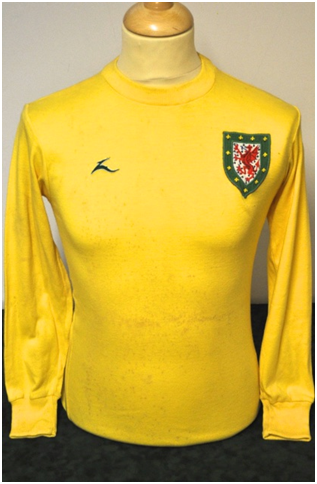
Rod Thomas matchworn shirt vs Hungary 1975. Photo: Simon Shakeshaft
Wales 0-3 Hungary, 1985 – only a month after yet another failure to reach a tournament at the hands of the Scots and the tragic death of Jock Stein in the Ninian Park dugout, Wales returned to Sloper Road for a friendly against a Hungary side that had qualified impressively for Mexico 86. In a four team group that included Austria and The Netherlands, Hungary had qualified with a round of fixtures to spare, winning in Vienna and Amsterdam.

In front of only 3,500 fans Joey Jones equalled Ivor Allchurch’s Wales cap record with his 68th cap, Mickey Thomas won his 50th cap and although Clayton Blackmore and Pat Van Den Hauwe both won only their third caps there was plenty of experience in the Welsh line-up with Peter Nicholas, Neville Southall, Kevin Ratcliffe and Alan Curtis (his penultimate cap), but Wales were shambolic in what was clearly a hangover from the preceding Scotland game.
A remarkably consistent feature of this fixture has been early Hungarian goals and, again, on only eight minutes Hungary sliced Wales open down the left for Márton Esterházy to score. In the second half Hungary thrust incisively down Wales’s right flank once again to score with ease. Right back Jones was having a torrid evening and was hauled off and replaced by Neil Slatter to little effect. Late on Hungary broke from a Wales attacking corner and Lajos Détári mugged off Kevin Ratcliffe to wrap up a deserving win.
Wales spent the rest of the 1985-86 season facing some exotic opposition in far-flung locations – Saudi Arabia, Uruguay and Canada – and Mike England began to ease out established faces like Thomas, Curtis and Jones and gave debuts to the likes of Mark Bowen, Mark Aizlewood, Malcolm Allen, David Williams (who had already been a player-manager at Bristol Rover before making his international debut), and a young Brighton striker called Dean Saunders. In one of these friendlies, in Dublin, Neville Southall broke his ankle which provided opportunities for his cast of understudies – Tony Norman, Andy Dibble and Martin Thomas – to win rare caps.
Hungary meanwhile thrashed Brazil in a pre-Mexico friendly and impressed in other warm ups but were a massive let down in Mexico where they were thrashed by the USSR and France and struggled to beat Canada. They have never qualified since.
Hungary 1-2 Wales, 2004 – in the first of two friendlies agreed as a package, Mark Hughes had identified Hungary as the ideal opposition to prepare for a home and away double header a year away to Austria in the middle of the qualifying campaign for the 2006 World Cup in Germany. Before then though Wales were to visit Budapest as part of the preparations for that campaign and to continuing to exorcise the disappoint of the play-off defeat to Russia only five months earlier. This healing process had got off to the perfect start with a Robert Earnshaw hat-trick inspired victory over a dreadful Scotland.
For the sixth time in eight games between these two nations Hungary went ahead early on after Danny Gabbidon was adjudged to have fouled in the box. An exquisite free kick from Jason Koumas, his maiden international goal, brought Wales level in a clash in which Hungary’s ‘dark arts’ would not have been out of place in John Charles’s era. But Wales were happy to face fire with fire with the likes of David Vaughan, Robbie Savage and Ben Thatcher all being booked for robust challenges. The Welsh team was missing ten regulars including Gary Speed who dropped out late on due to illness. He’d been filling-in at left back in recent internationals with Darren Barnard an unconvincing understudy. Thatcher looked the part in the game and suggested he might be a long-term option in the problematic position having become eligible during FIFA’s 2004 amnesty allowing players to switch international allegiance after winning caps for another country at under 21 level; in Thatcher’s case, England. Savage later tussled with Hungary manager Lothar Matthaus on the touch line.
A late defensive gaffe gifted Earnshaw a seventh goal in only 11 internationals and a first Wales friendly victory away from home in four years since victory in Qatar.
Wales 2-0 Hungary, 2005 – although this and the previous Hungary clash had been agreed on Hughes’s watch, by the time this clash came round – the last time the two nations met – Hughes had departed for Blackburn Rovers. The 2004 victory in Budapest came as part of an unbeaten run of five friendlies (Scotland, Hungary, Norway, Canada, Latvia) that appeared to suggest the pain of yet another agonizing qualification near-miss was healing. But disappointing draws in Azerbaijan and chaotically at home to Northern Ireland, left Wales immediately off the pace in its 2006 World Cup qualifying group. Hughes appeared to be delaying his inevitable departure for a club managerial role simply to have a crack at England, the first clash with the Three Lions since 1984 and the occasion of Hughes’s goalscoring international debut. Understandable? Yes. Selfish? Probably.
A timid display at Old Trafford followed by a defensively-fragile performance four days later at home to Poland saw Hughes leave for Ewood Park having failed to win his last ten competitive games. A raft of international retirements followed and they betrayed how parlous Hughes’s short-termism had left the international set-up: the under 21s had forgotten how to win and youth had seen its pathway blocked off, or delayed, to a senior squad that had grown too old together.
It was the latter criticism that John Toshack would make most scathingly from his pundit seat in the studio. So when he was announced as Hughes’s successor there was an immediate backlash from some of those senior players loyal to Hughes who had decided against retirement. Hungary visited the Millennium Stadium in February 2005 but with five players dropping out less than 24 hours beforehand, Toshack was able to name only two players with over 25 caps to their name – Rob Page (captain for the occasion) and Craig Bellamy. Four players made their debut: David Partridge, Sam Ricketts, Danny Collins and Stephen Roberts. Toshack could not even fill the bench.
Again, the nations’ colour clash necessitated a Wales change with red home shorts accompanying the fetching all white Kappa away shirt and socks. Bellamy scored twice in front of over 16,000 fans, a crowd that in any other Welsh stadium would have made its presence felt but in the cavernous Millennium Stadium it was a portent to the atmosphere at future games on the banks of the Taff under Toshack.
